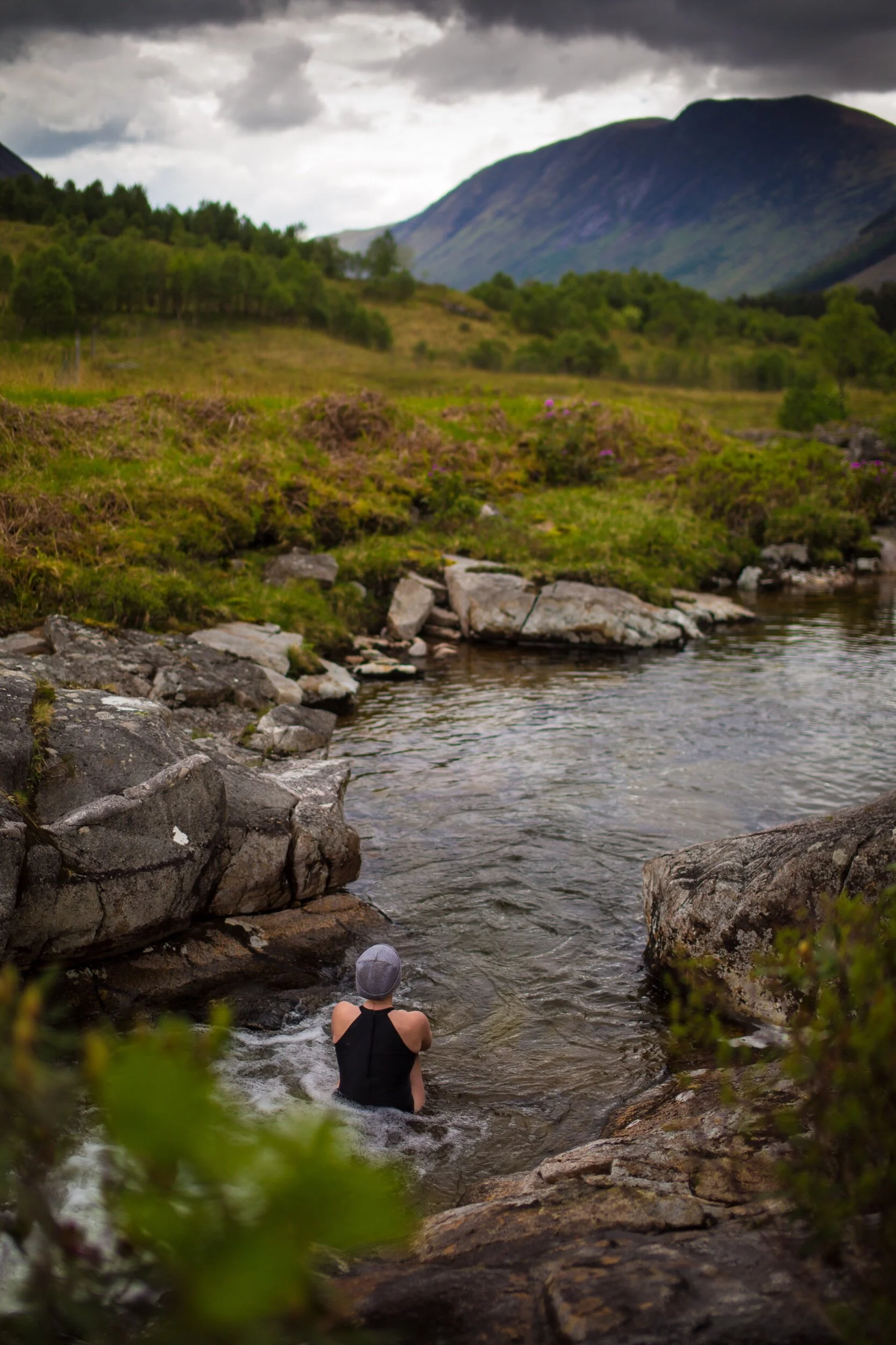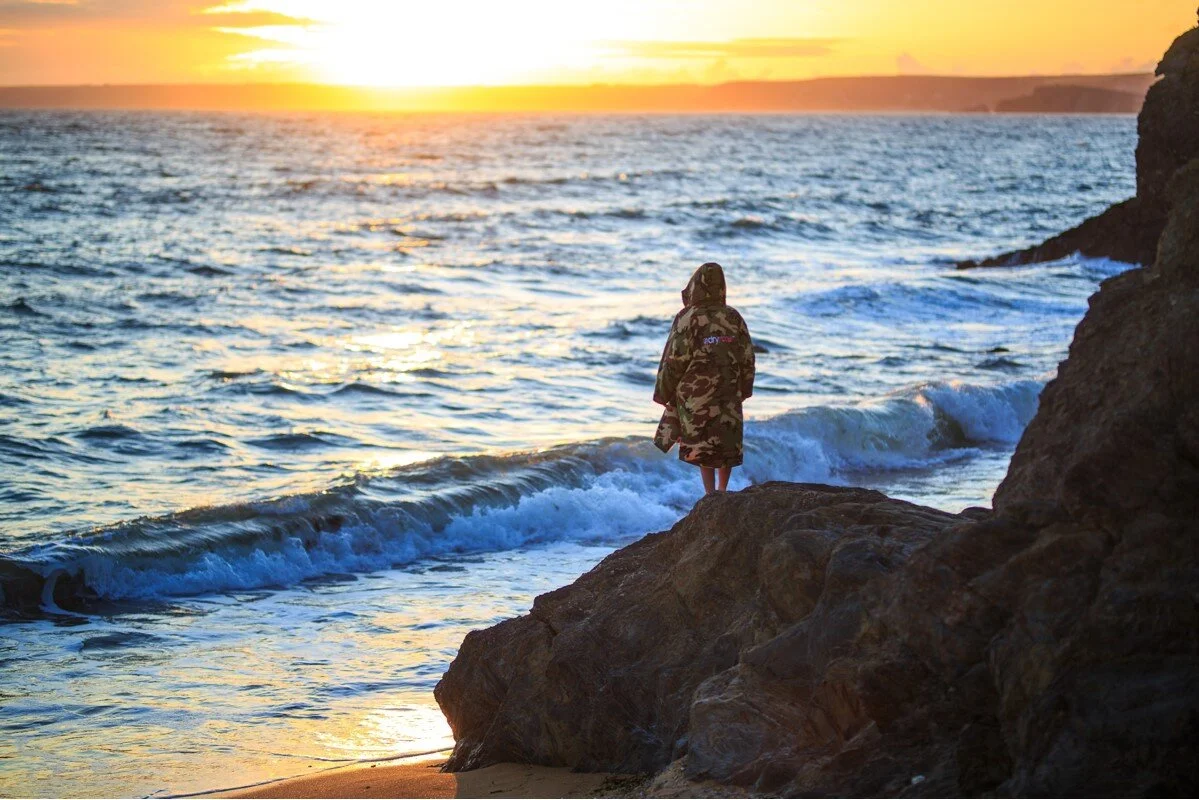Handling Eco-Anxiety
Today, I feel it. I feel a tightness around my chest, a sadness in my heart. I feel on the verge of tears, and have done all week.
This might be a result of not enough sleep this week, but I think the real culprit has been too much time online watching the news of the 2019 election unfold, hearing all the hate and anger from both sides, Brexit plans with the potential to affect current animal welfare and environmental policy, unknown’s for the NHS... pain and suffering, separatism.
We are so, so lucky with the way we live in the UK. Most of you reading this will want for nothing. And yet we are more isolated, lonely and confused than ever before.
There’s a term that’s been banded around a lot over the last couple of years - eco-grief, or eco-anxiety - the pain or worry shared by millions of people around the globe at the current trajectory we are taking to planetary collapse. It’s not just the potential for the death of millions of people that causes me this pain, but the suffering of billions of sentient beings - humans and animals - the collapse of spectacular ecosystems, and the loss of connection that terrifies me.
This week, with the election results favouring a party whose letter through my door didn’t even once mention the word ‘environment’ and who would rather stand alone in a world that now, more than ever, needs to find connection and community, has felt like a huge kick in the proverbials. It hurts.
This isn’t just about politics. This is about the growing understanding of our planet’s fragility, and what we must do to stop destroying it. More and more people are waking up to the urgency of this, and to an understanding of our need to reconnect to our communities around us, to nature to improve our wellbeing, to a cause bigger than anything our planet has faced in our species’ history.
With that understanding comes an immense pressure, a desperate need to protect the places and people we love. This is regardless of the political climate, but the feelings around it are exacerbated by politicians who have agendas that aren’t in line with this urgency or care.
So what’s the answer?
Yvonne Chouinard, the legendary founder of Patagonia, once said:
“The antidote to depression is action”
This might not be the soundest medical advice for clinical depression, but for eco-anxiety I think it’s a pretty good place to start.
I feel this. I struggle with this. I’m not above these feelings, but I have found some ways to cope with them.
My 10 top ways to get a handle on eco-anxiety:
Take a step out of the bubble
It’s easy to just get sucked into the hateful conversations, the round and rounds and back and forths, the constant stream of facebook posts, apocalyptic newspaper articles, twitter arguments. Take a minute to recognise how they make you feel. It’s up to you to limit your involvement in these, and if they’re harming you, step out of it. Even if it’s just momentarily.
Educate yourself
As above, social media is an important way to stay up to date with the latest news, but instead of ending up in these spiralling conversations, choose to educate yourself through your trusted streams. Learn all you can - read scientific papers and reviews, listen to the people you trust, not just anybody who has a voice online.
Take action
Anything is better than nothing, and action helps to bring back that feeling of hope. Do a mini beach clean, plant a tree, change your bank - invest in green companies, vote with your wallet, ask your local coffee shop to stock compostable cups. If you’re a teacher, talk to your students about the oceans. Anything.
Find your tribe
You are not alone. Find a group of people who feel the same way you do - connect with a charity, an outdoor group, a local paddleboarding club.
Galvanise your community
Especially if you don’t have a ready-made tribe on your doorstep - create one. Organisations like Surfers Against Sewage (the Plastic Free Coastlines campaign) or Extinction Rebellion can help you with this.
Go to church
If for you that’s a religious building, do this. If like me it’s the great outdoors, go there. Soak it in. Remember what it is you’re fighting to protect. Let it wash away the bullshit, the political nonsense. Come back to what matters to you.
Be kind to yourself
We need you well. If that means taking a step away for a while, do it. Spend time with your loved ones. Nurture yourself. Get in the sea, hike up a hill, get your 8 hours of sleep, fuel your body with food that makes you feel good. Being kind to yourself doesn’t necessarily mean letting yourself binge on Netflix all day and eat takeaway, but occasionally if you need that, do it. Then be kind to your body and your mind - you know what it is you need.
Be kind to your peers
This isn’t a competition. This isn’t about who’s or which environmental campaign is more crucial. They are ALL needed. Support each other, be kind to each other.
Don’t forget the success stories too
Look how far we’ve come in just a few years. The climate emergency makes headlines thanks to grassroots activists in the XR movement. A deposit return scheme is underway thanks to SAS’s campaign. Beaches and wild places are regularly being cleaned because people get it. Save Our Rivers have had several successful campaigns protecting wild rivers in Wales. Behavioural change is happening.
Keep an open mind
Don’t judge or shame people for how they voted - they had their reasons. We all have the things we believe in, and we have to respect that in other people too. Instead, nurture, invite, create community... In a world where you can be anything, Be Kind.
This is a tough time, and I send love to all of you who, like me, feel devastation and pain amongst the current political and environmental climate. Don’t stop. We MUST stick together, and keep pushing forward for what we believe in.
Please support the Vitamin Sea Project if you can. I’m setting up this charity to help create the connection for those who maybe haven’t had the opportunity to connect the the natural world and appreciate how amazing it is. To create community, and a network of more people who get it, and who will do everything they can to protect the places they love.
Thank you.
CaL

